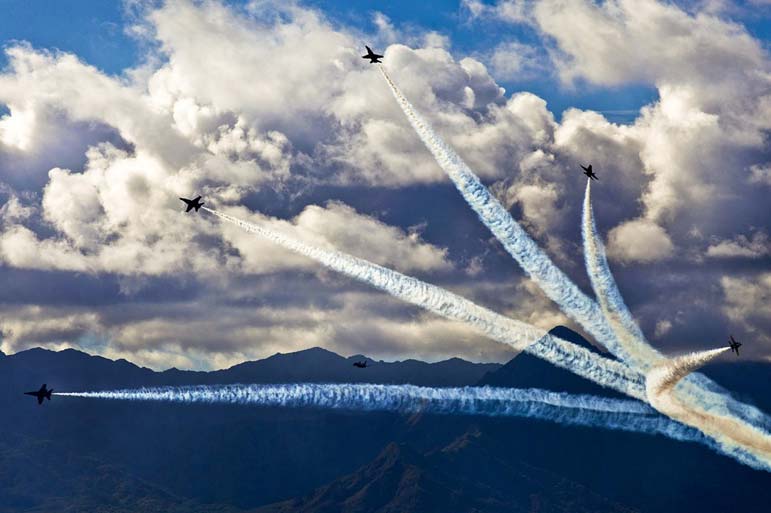
Half a century later, American society still bears the scars of Vietnam. Visit any major American campus and you will encounter a new generation of student revolutionaries, self-consciously imitating the mannerisms of the antiwar movement of the late '60s: denouncing the president as a fascist and the police as pigs, desperately hoping their next sit-in or riot will make the evening news.
For both generations - the baby boomers, who long ago cut their hair and became management consultants, and the social justice warriors of today - there are few things more petrifying than the spectacle of generals in the government. They despise Donald J. Trump, who they insist is "not our president." But they fear the men in uniform.
Should the rest of us be worried that three key posts in the Trump administration are now held by military men? General James Mattis is secretary of defense, despite having retired only recently as the general in charge of Central Command. General John F. Kelly is secretary of Homeland Security, having previously run Southern Command. Lieutenant General H.R. McMaster was, until his appointment as national security adviser last Monday, number two at the Army Training and Doctrine Command. It has been a very long time indeed since career soldiers (as opposed to civilians who had served their country in time of war) held this many top-level government jobs.
Certainly, my former colleagues at Harvard - who essentially believe that the executive branch should be staffed exclusively by professors - look askance at the Trump administration. Some mutter the word "junta" under their breath. Others draw parallels with the fall of the Roman republic.
Almost exactly a year ago, when a Trump presidency still seemed like a joke, this newspaper ran a spoof front page - dated April 17, 2017 - with the lead "Deportations To Begin." Now the deportations have begun, and President Trump seemed to relish the thought, saying last week that they would be a "military" operation. Harvard Yard echoes with the sound of heads exploding.
Yet the civilians need to be reminded of what really happened back in 1965. For the disastrous decisions to escalate in Vietnam were taken against the advice of the generals. The biggest blunder in modern American history was the work of Lyndon Johnson, arguably the most politically experienced president of them all; Robert McNamara, the "whiz kid" former president of the Ford Motor Company; Dean Rusk, a career diplomat before he ran the Rockefeller Foundation; and Walt Rostow, an economist from MIT.
Indeed, an outstanding book entitled "Dereliction of Duty' condemns the joint chiefs of staff for failing effectively to oppose the civilians' strategy, which they knew to be fatally flawed. The author of that book? Step forward, H.R. McMaster, the new national security adviser.
The biggest difference between American soldiers and American civilians is that the former learned the right lessons from Vietnam. Men like Mattis, Kelly, and McMaster belong to the generation that rethought the American way of war in the wake of that great debacle. Mattis and Kelly enlisted in the Marines in, respectively, 1969 and 1970. In common with their younger Army comrade McMaster, they are warrior-scholars, deeply committed to learning from history.
I do not say this lightly: Never in the history of the English-speaking peoples has there been an officer class this good. It is not just that they are smart and knowledgeable. Seared by the memory of Vietnam, they have an ethos of selfless public service that is unlike anything I have ever encountered.
Whenever I am succumbing to gloom about America's political future, I remind myself of the unexpected legacy of the wars in Afghanistan and Iraq. Though the Obama administration frittered away the hard-won gains of the later Bush years, the generation that fought those wars has come back home imbued with a new spirit. Incorruptible, indefatigable servants of their country, they have learned the hard way the weaknesses, as well as the strengths, of a political system that subordinates the military to civilian authority.
Those who fear rule by generals fail to grasp that the US Constitution today has no more dependable defenders than these men. Much else about the Trump administration makes me worry. The former businessmen, including the president himself, are struggling to find their feet. There are conflicts of interest, contradictory statements, cocked-up executive orders, and countless empty offices. It is the soldiers who exude competence, just as it is the veterans in Congress who show backbone.
So stand to attention, Harvard. Half a century after the civilians stumbled into the quagmire of Vietnam, it's time give American militarism the salute it deserves.
Previously:
• 02/21/17: The global network has become dangerously unstable
• 02/14/17: The battles the president can -- and must -- win
• 02/07/17: Dr. Donald And Mr. Trump
• 01/31/17: The nature of power in the networked age
• 01/24/17: Can Trump's art of the deal make America great again?
• 01/18/17: The 'Wettergate' delusion
• 12/14/16: I was wrong
• 12/06/16: Trump's Mad Dog is the sane warrior we need to make the world safer
• 11/30/16: Trump's Catch-22
• 11/10/16: Populism as a backlash against globalization: Historical perspectives
• 10/05/16: Simplifiers v. complicators
• 09/27/16: From Jolie-Pitt to the jolly pit of globaloney
• 09/21/16: The fight isn't going Hillary's way
• 06/28/16: The year of living improbably
• 05/17/16: Welcome to 1984
• 04/19/16: The rise of caveman politics
• 04/05/16: Tay, Trump, and artificial stupidity


 Contact The Editor
Contact The Editor
 Articles By This Author
Articles By This Author